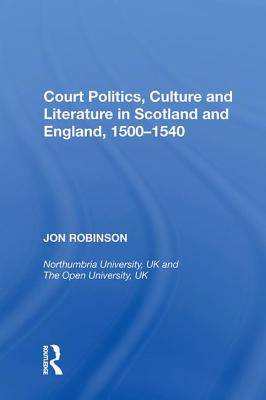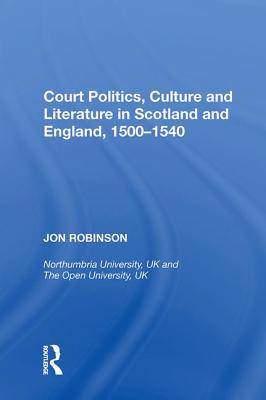
- Retrait gratuit dans votre magasin Club
- 7.000.000 titres dans notre catalogue
- Payer en toute sécurité
- Toujours un magasin près de chez vous
- Retrait gratuit dans votre magasin Club
- 7.000.0000 titres dans notre catalogue
- Payer en toute sécurité
- Toujours un magasin près de chez vous
Court Politics, Culture and Literature in Scotland and England, 1500-1540
Jon RobinsonDescription
The focus of this study is court literature in early sixteenth-century England and Scotland. The author examines courtly poetry and drama in the context of a complex system of entertainment, education, self-fashioning, dissimulation, propaganda and patronage. He places selected works under close critical scrutiny to explore the symbiotic relationship that existed between court literature and important socio-political, economic and national contexts of the period 1500 to 1540. The first two chapters discuss the pervasive influence of patronage upon court literature through an analysis of the panegyric verse that surrounded the coronation of Henry VIII. The rhetorical strategies adopted by courtiers within their literary works, however, differed, depending on whether the writer was, at the time of writing the verse or drama, excluded or included from the environs of the court. The different, often elaborate rhetorical strategies are, through close readings of selected verse, delineated and discussed in chapter three on David Lyndsay and chapter four on Thomas Wyatt and Thomas Elyot.
Spécifications
Parties prenantes
- Auteur(s) :
- Editeur:
Contenu
- Nombre de pages :
- 198
- Langue:
- Anglais
Caractéristiques
- EAN:
- 9780815388265
- Date de parution :
- 29-11-17
- Format:
- Livre relié
- Format numérique:
- Genaaid
- Dimensions :
- 156 mm x 233 mm
- Poids :
- 529 g

Les avis
Nous publions uniquement les avis qui respectent les conditions requises. Consultez nos conditions pour les avis.






